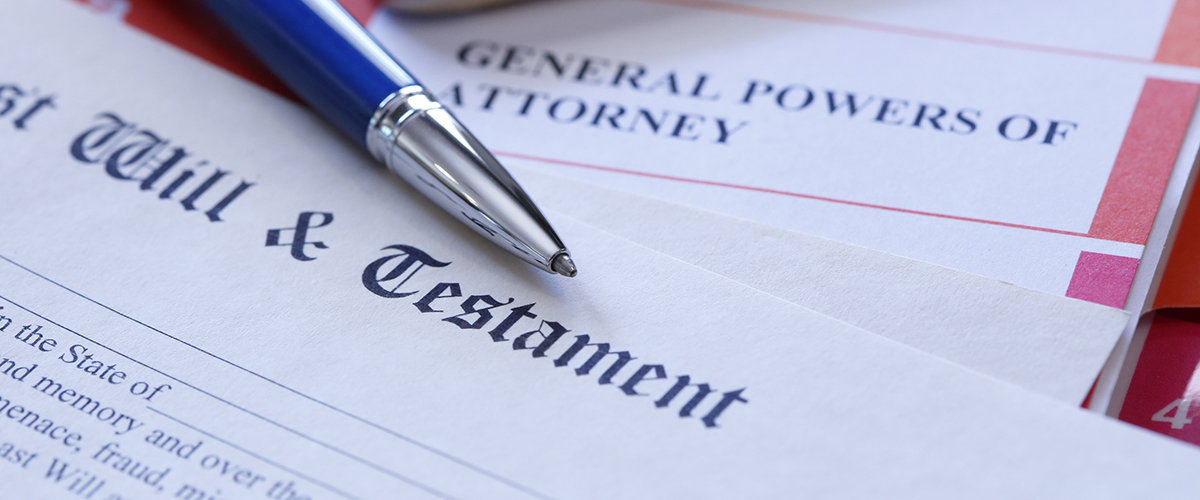
Estate Planning
Estate planning is a road map for how your assets (both money and property) will be distributed after you die. It also defines how other important personal matters will be handled according to your instructions. This includes who will take care of any minor children or pets.
Key Components of an Estate Plan
A thorough estate plan consists of several parts, including legal documents and financial instruments. Here’s an overview of the key components you should have in your estate plan.
- Legal Will: A will is a legal document in your estate plan that spells out who should receive your assets (your beneficiaries) and how those assets will be divided among those beneficiaries. It also names your executor and guardians for minor children (if applicable).
- Trusts: A trust is a financial instrument that holds assets you want to give to someone else and sets out conditions for when and how those assets will be transferred. A third-party trustee (that you name) is responsible for managing and administering the assets held in the trust.
- Power of Attorney (POA): A power of attorney is a legal document that names a specific person to act on your behalf if you become incapacitated due to an accident or illness. Without this document, no one will be able to manage or access your assets for you during your period of incapacitation.
- Insurance: As you go through the estate planning process and consider the many tax implications, you might realize that your estate won’t provide enough for your loved ones to manage after you’re gone, especially if you have dependents.
- Health care directive (HCD): A document that allows you to make certain healthcare decisions in advance or authorize someone to make to make them for you when you can’t communicate them yourself.
Key Players
The following are the key players in an estate plan other than yourself. It’s important to think through your goals and wishes before making these decisions.
- Attorney: Choose the person or persons you want as your Power of Attorney for property, finances and/or health care. They will act on your behalf if you are incapacitated. Make sure you speak with them so they’re aware of the appointment. Also, consider who you would add as a backup in case they’re unable to perform in the role. Select a Proxy – in the case of a health care directive.
- Executor: Select the executor for your will: Just like your Power of Attorney, ensure you speak with them first and choose backups. Being an executor is a big job and it’s important to ensure the person you choose is up for the task. The executor must file your final tax return and make sure your heirs receive their inheritances. An administrator will be appointed by the courts – if you die intestate without a will.
- Beneficiaries: Decide your beneficiaries. They’ll receive a percentage of your residual estate (everything that’s left after debts/taxes are paid and any specific gifts are distributed). Make provisions for family members with special needs.
- Guardian: If you have dependent children, choose a guardian for their care and the management of their inheritance.
Other considerations
Estate planning in Canada is a multi-step process that may involve consultation with various experts, such as legal, tax, and insurance professionals. Depending on the complexity of your estate and your family situation, you may be able to handle some or all of the estate planning process on your own. Determine if you can handle the planning process alone or if you will need help.
Decide who should receive your assets. There may be other individuals or organizations to whom you want to leave some of your assets or specific items that you want to bequest as gifts. In some cases, this can be a very straightforward decision, while it might be a bit complicated in other situations. Make it simple – seek professional advice.
Understand the tax consequences to your beneficiaries and to your estate, and review the impact probate fees on your estate and strategies to maximize tax efficiency.
Putting it all together
Keep all the important documents relating to your estate planning and information about your assets in one spot, safe and secured. Have a trusted contact person (friend or family member) who will communicate the location of these important documents to your family in the case of an emergency.
If you have questions about where to start estate planning, remember that our Retirement Information Consultants are CERTIFIED FINANCIAL PLANNER® or QUALIFIED ASSOCIATE FINANCIAL PLANNER™ professionals and are here to help.